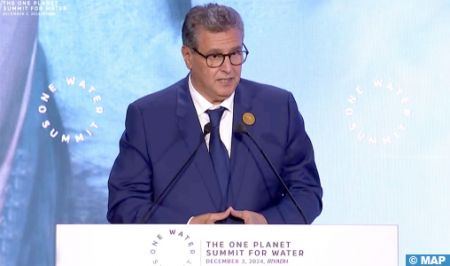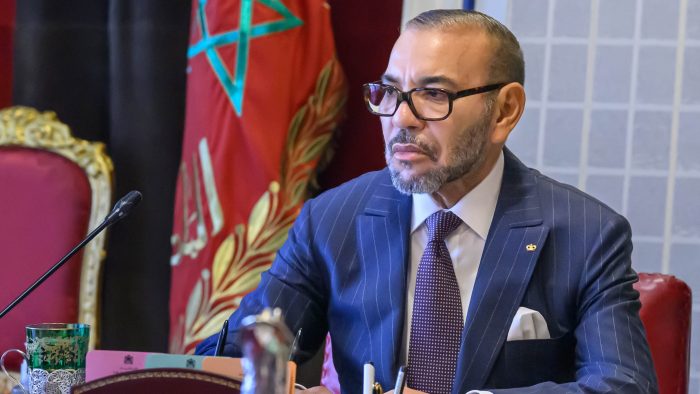Head of Government, Aziz Akhannouch, said on Tuesday in Riyadh, that managing water resources is a strategic priority for Morocco, and that King Mohammed VI, who brought up the issue in several of his speeches and guidelines, permanently and personally supervises this management.
The Head of Government, who is representing the King at the “One Water” Summit, which kicked off on Tuesday in the Saudi capital, said that the Kingdom dedicated more than $14 billion to implement an ambitious national program to guarantee access to drinking and irrigation water, through a comprehensive and innovative approach which allowed the Kingdom to guarantee a strategic water reserve.
Several main goals have been targeted, the first of which is implementing structuring projects linking water basins, notably by establishing a water highway providing a water connection between the north and center of the Kingdom, he said, adding that Morocco has succeeded in completing the first phase of this project by linking the Sebou and Bouregreg basins, with a water conveyance capacity of an average of one million cubic meters per day.
He added that the second goal is achieving seawater desalination projects, stressing that Morocco has already constructed 14 stations, including those of Agadir and Dakhla.
Akhannouch stressed that the Kingdom strives to accelerate the construction of 16 additional stations, the main ones being those in Casablanca – the largest of its kind in Africa – and Rabat, to be built under a public-private partnership. The aim of these seawater desalination projects is to increase current capacity, estimated at 254 million cubic meters, to an overall capacity of 1.7 billion cubic meters per year by 2030.
As for the third goal, the Head of Government underlined the promotion of non-conventional water resources, mainly the reuse of treated wastewater, especially for irrigating green areas in cities such as Rabat, Marrakech and Agadir.
The fourth goal is the promotion of water-saving irrigation systems, through the generalization of irrigation techniques and systems aimed at rationalizing water consumption in the agricultural sector, Akhannouch added.
As part of the Green Morocco Plan, the Kingdom has equipped around one million hectares with irrigation systems, including over 650,000 hectares with drip irrigation systems, saving over 2 billion cubic meters of irrigation water. With the “Generation Green” strategy, Morocco intends to increase the area under drip irrigation to one million hectares by 2030, he said.
Akhannouch added that the fifth goal concerns the dam policy, aimed at boosting water supply, recalling that Morocco adopted this strategy as early as the 1960s, enabling it to build a major water infrastructure comprising 154 large dams with a capacity of over 20 billion cubic meters, to which can be added 17 dams currently under construction with a capacity of almost 5 billion cubic meters. This will bring total storage capacity to 25 billion cubic meters by 2030, he said.
Despite Morocco’s numerous achievements in managing water stress, several challenges and constraints remain, which can only be overcome through a serious and responsible commitment, the pursuit of participative action, and the strengthening of innovative investments and the development of public-private partnerships, Akhannouch said.



